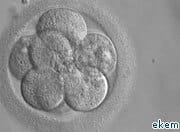Controversial GM babies could be born with serious health issues, new research by scientists in Spain has suggested.
An experiment carried out on mice involving ‘mitochondrial replacement’ – a method used in the controversial three and four-parent baby techniques approved by Parliament last year – caused rapid ageing, and changes to their metabolism.
The results have led to fears that the same problems will occur in human beings, as UK scientists push ahead with GM babies.
Accelerated ageing
José Antonio Enriquez, of the CNIC research institute in Madrid, reported that the mice born after mitochondrial replacement seemed healthy when they were young.
However, as they aged a range of problems arose including changes to chromosomes which were consistent with accelerated ageing.
The UK is the only country in the world to have legalised three and four-parent baby techniques, after the House of Commons and the House of Lords both approved the plans in February last year.
Unsafe
A team at Newcastle University has been trialing a version of the four-parent baby technique in experiments which involve the destruction of hundreds of human embryos.
Last month, a report of their trial in scientific journal Nature claimed that the technique was likely to lead to normal pregnancies.
However, Deputy Director of The Christian Institute Humphrey Dobson said scientists “can’t possibly know that it is safe”.
Scientists want to push ahead with GM babies despite evidence in the report that mutated DNA could still be passed on.

